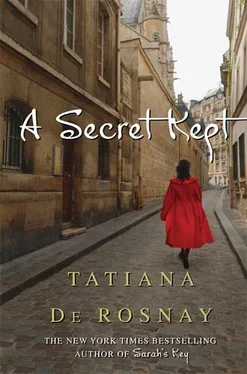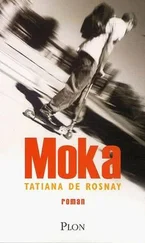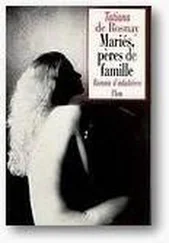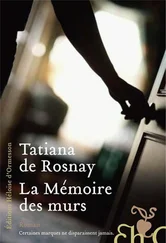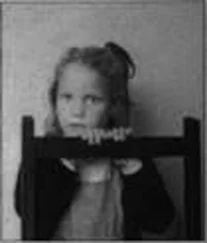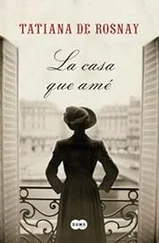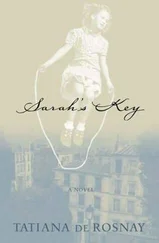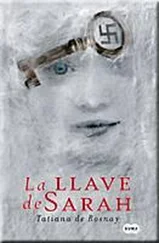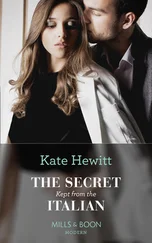“I know you’re on the warpath.”
“The warpath?” I repeat.
“I know what you’ve been doing. I know you asked Laurence Dardel to give you our mother’s medical file.”
I am silenced by the seriousness in her voice.
“I know Gaspard gave you a document. He told me. I know you probably know who the blond woman was. And I overheard you questioning Solange just now.”
“Wait, Mélanie,” I blurt out, my face reddening with mortification at the idea of her thinking I could be hiding such important details from her. “You must understand that I was going to tell you all this. I-”
She holds up a slender, white hand.
“Just listen to me.”
“Okay,” I say, unnerved, smiling uneasily. “I’m all ears.”
She doesn’t smile back. She leans forward, her green eyes inches from mine.
“Whatever you find out, I don’t want to know.”
“What?” I breathe.
“You heard me. I do not want to know.”
“But why? I thought you did. Remember? The day you remembered why we had the crash. You said you were ready to face the pain of knowing.”
She opens the door without answering, and I fear she is about to slip off without another word. But she whips around, and when she faces me once more, her eyes are filled with such sorrow I want to take her into my arms.
“I’ve changed my mind. I’m not ready. And when you do find out-whatever it is-don’t talk to our father. Don’t ever tell him.”
Something in her voice breaks, and she dashes away, face lowered. I stand there, unable to move. How is it that a brother and a sister can be so dissimilar? How is it that Mélanie prefers silence to the truth? How can she live, not knowing? Not wanting to know? Why does she want to protect our father so?
As I stand there, disconcerted, my shoulder against the door frame, my daughter emerges from the long corridor.
“Yo, Dad,” she says. Then she sees my face. “Bad day?”
I nod.
“Me too,” she says.
“So that makes two of us.”
And to my wonder, she hugs me, hard. I hug her back, kissing the top of her head.
It is not till later, much later, when I am back home, that the idea comes to me.
My mother’s note to June Ashby is in my hands, and I am reading it for the umpteenth time. Then I glance at the article I printed out about June Ashby’s death. The name of her associate, Donna W. Rogers. I know what I want to do. It is very clear to me. I find the telephone number on the June Ashby Gallery website. I look at my watch.
Five o’clock in the afternoon in New York City. Do it, says the little voice. Just do it. You have nothing to lose. She may not even be there, she may not remember a thing about your mother, she may not even take your call, but just do it.
After a couple of rings a masculine voice says breezily, “June Ashby Gallery, how may I help you?”
My English feels rusty; I haven’t spoken the language in months. I hesitatingly ask for Madame Donna Rogers.
“May I ask who is calling?” says the amiable voice.
“Antoine Rey. I am calling from Paris, France.”
“And may I ask what this is about?”
“Please tell Madame Rogers that this-this is a very personal matter.”
My French accent comes out so strongly it makes me squirm. He asks me to hold on.
Then a woman’s firm tones are heard, and I know it must be Donna Rogers. I feel tongue-tied for a couple of seconds. Then I blurt out, “Yes, hello… My name is Antoine Rey. I’m calling you from Paris.”
“I see,” she says. “Are you one of my clients?”
“Um, no,” I reply awkwardly. “I am not a client, Madame. I’m calling you about something else. I’m calling you about… about my mother…”
“Your mother?” she asks. Then she says courteously, “Excuse me, what did you say your name was?”
“Rey. Antoine Rey.”
A pause.
“Rey. And your mother’s name…”
“Clarisse Rey.”
There is such a long silence on the other end of the line that I fear I have lost her.
“Hello?” I say tentatively.
“Yes, I’m still here. You are Clarisse’s son.”
This is statement, not a question.
“Yes, I am her son.”
“Can you hold on, please?”
“Of course.”
I make out a couple of muffled words, some rustling and crumpling. Then the man’s voice: “Hold on, sir, I’m transferring you to Donna’s office.”
She finally says, “Antoine Rey.”
“Yes.”
“You must be in your forties, I presume?”
“Forty-four.”
“I see.”
“Did you know my mother, Madame?”
“I never met her.”
I am puzzled by her answer, but my English is too stilted for me to react fast enough.
She goes on. “Well, you see, June told me all about her.”
“What did she tell you about my mother? Can you tell me?”
There is a long hush. Then she says quietly, so quietly I have to strain my ears to make out her words, “Your mother was the love of June’s life.”

From where I sit, the countryside scuttles by, a drab blur of gray and brown. The train is too swift for raindrops to settle on the windowpanes, but I know it is raining. It has been wet for the past week. Sodden, end of winter weather at its worst. I crave Mediterranean luminosity, the blue and white of it, the scorching heat. Oh, to be somewhere in Italy, on the Amalfi coast, where I went years ago with Astrid, the dry, powdery scent of pines swaying on rocky coves, the sun-kissed, salty breeze strong on my face.
The high-speed train to Nantes is jam-packed. It is Friday afternoon. Mine is a studious passenger car, people reading books or magazines, working on their laptops, listening to music from their earphones. In front of me, a young woman writes zealously in a black Moleskine notebook. I can’t help looking at her. She is outstandingly attractive. Perfect oval of a face, luxuriant chestnut hair, fruitlike mouth. Her hands are exquisite too, long, tapered fingers, graceful wrists. She does not look up at me once. It is only when she glances outside from time to time that I can glimpse the color of her eyes. Amalfi blue. Next to her is a fleshy guy dressed in black who is engrossed in his BlackBerry. And by my side is a seventy-year-old woman reading poetry from a small book. She looks impossibly British, a mop of silver hair, aquiline nose, toothy smile, and immense hands and feet.
From Paris to Nantes is barely a two-hour trip, but I am counting the minutes, which seem to be crawling by at a snail’s pace. I haven’t seen Angèle since she turned up for my birthday in January, and the yearning for her seems bottomless. The lady next to me gets up and comes back from the bar with a cup of tea and crackers. She flashes a friendly smile at me, and I smile back. The pretty girl is still scribbling away, and the man in black finally puts his BlackBerry down, yawns, and rubs his forehead jadedly.
I think of the past month. Mélanie’s unforeseen warning after Blanche’s funeral: Whatever you find out, I don’t want to know. Solange’s hostility when I mentioned June Ashby’s name: I remember nothing about her and your mother. And the emotion in Donna Rogers’s voice: Your mother was the love of June’s life. She had asked me for my address in Paris, that day, on the telephone. A couple of things she could send me that June had kept and that maybe I would like.
I had received the parcel a few weeks later. It contained a stack of letters, some photographs, and a small reel of Super 8 film. And a card from Donna Rogers.
Dear Antoine,
June kept these preciously till she died. I am sure she would be happy thinking they are now in your keep. I don’t know what the little film reel is, she never told me, but I’d rather you find out for yourself.
Читать дальше
